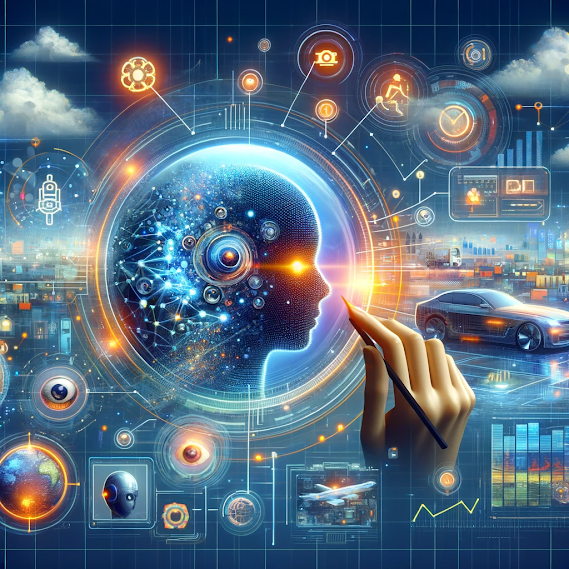AI in Education: Transforming Learning and Teaching
AI in Education: Transforming Learning and Teaching
In recent years, the education industry has witnessed a technological revolution, prominently led by advancements in Artificial Intelligence (AI). As of 2023, the global education market is a massive enterprise, worth billions of dollars and encompassing everything from primary education to higher education and professional training. Within this sprawling sector, AI is emerging as a transformative force, reshaping how we learn, teach, and manage educational institutions.
The Scale of the Education Industry in 2023
The education industry in 2023 is a dynamic and rapidly growing sector. Valued at [insert latest statistic], it is a testament to the increasing global emphasis on learning and skill development. This growth is driven by factors such as rising population, increasing access to education in developing countries, and the growing importance of lifelong learning in a rapidly changing job market.
The Power of AI: From GPT-4 to Personalized Learning
Did you know that GPT-4, the latest model from OpenAI, contains 45 gigabytes of training data, equivalent to 1.7 trillion parameters? To put this in perspective, this is akin to absorbing the contents of over 12,375 books, requiring approximately 61,875 hours of reading for an average person. It would take a person reading 3 hours every week nearly 58 years to cover this much material!
Such immense computing power is revolutionizing the field of education. AI systems like GPT-4 are not just repositories of information; they are capable of understanding, interacting, and personalizing content in unprecedented ways.
The Transformation of Education Through AI
Personalized Learning Experiences: AI is capable of tailoring educational content to meet the individual needs of students. It can adapt to each student's learning pace, style, and preferences, offering a customized learning journey. This personalization is vital in addressing the diverse learning needs of students and can significantly enhance learning outcomes.
Reducing Teachers' Administrative Burden: AI can automate numerous administrative tasks such as grading, attendance tracking, and even responding to common student queries. This liberates teachers from time-consuming paperwork, allowing them to focus more on teaching and interacting with students.
Supplemental Instruction Accessibility: AI-powered platforms can provide supplemental instruction to anyone seeking additional learning resources. These platforms can offer extra help in areas where students struggle, making education more inclusive and accessible.
Case Study: Khanmigo's Impact on Learning
An excellent example of AI in education is Khanmigo, a text-based bot created by Khan Academy. Designed to tutor students in math, science, and the humanities, Khanmigo demonstrates how AI can be a powerful tool in education. Such AI tutors can provide instant feedback, detailed explanations, and personalized learning paths, making education more effective and engaging.
The Future of AI in Education
As AI technology continues to advance, its potential in education is boundless. Future developments could include:
Virtual Reality (VR) and Augmented Reality (AR) for Immersive Learning: Integrating AI with VR and AR can create immersive learning experiences, making complex concepts easier to understand and more engaging.
Predictive Analytics for Student Success: AI can analyze student data to predict and prevent potential learning difficulties, dropouts, and even suggest career paths based on individual aptitudes and interests.
Global Education Accessibility: AI can break down geographical and language barriers, providing high-quality education resources to remote and underserved communities.
Challenges and Considerations
While AI holds great promise for the education sector, there are challenges and ethical considerations to address:
Data Privacy and Security: With the increasing use of AI, safeguarding student data privacy is crucial. Ensuring secure and ethical handling of data is paramount.
Addressing the Digital Divide: There's a risk that AI in education could widen the gap between those with access to technology and those without. Efforts must be made to ensure equitable access to AI-powered educational tools.
Teacher Training and AI Literacy: Teachers need to be trained in using AI tools effectively, and students need to be literate in AI to leverage its full potential.
AI's role in transforming the education industry is undeniable. From personalized learning experiences to reducing the administrative burden on educators, AI is paving the way for a more efficient, effective, and inclusive educational system. As we navigate the challenges and embrace the opportunities, AI stands to not only complement traditional teaching methods but also revolutionize the very nature of learning and teaching. The future of education, powered by AI, is a future where learning is more accessible, engaging, and tailored to the needs of every student, promising a brighter, more educated world. Gain more knowledge with AI tools such as AI interactive learning and AI tools for document summarization.

.jpg)
.jpeg)


Comments
Post a Comment